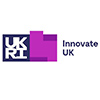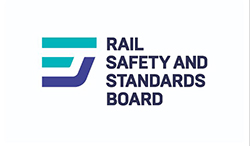AI Research Projects
This page presents research projects undertaken in the Data Science and AI research group that relate to AI.
Deep Learning Approaches for Advancement of Future Mobile Communication Systems
Artificial Intelligence Ensemble for Monitoring Safe Baby Birth
Artificial Intelligence Ensembles for Predicting Train Delays
PREDICTion of GastroIntestinal malignancy in patients with IRON Deficiency (PREDICT-GI-IRON)
We also have a selection of projects in other themes with relevance to AI:
Closing The Loop on Precision Spraying
Participants
Summary
Agricultural precision sprayers are indispensable tools for crop protection and management, enabling farmers to efficiently distribute fertiliser, herbicides, and pesticides across vast expanses of land. The effectiveness of these sprayers' hinges on an accurate assessment of their performance, particularly in pinpointing the precise locations where spray deposits have landed. Traditionally, this assessment has relied on manual methods, such as tracers and Water-Sensitive Papers (WSPs), both of which entail manual input from farmers and provide only approximate values for spray deposition on targets or non-targets.
)
This project proposes several novel methodologies to obviate the need for tracers or WSPs to locate spray deposits from agricultural precision sprayer systems. Utilising Deep Learning Computer Vision with explainable Artificial Intelligence (XAI), we aim to create trustworthy systems capable of autonomously identifying and assessing spray deposition patterns, thereby streamlining the process and enhancing overall precision in agricultural spraying practices.
Funding

Publications
[1] Rogers, Harry ; De La Iglesia, Beatriz ; Zebin, Tahmina ; Cielniak, Grzegorz ; Magri, Ben. / An Agricultural Precision Sprayer Deposit Identification System. 2023 IEEE 19th International Conference on Automation Science and Engineering (CASE). 2023. (IEEE International Conference on Automation Science and Engineering).
[2] Rogers, Harry ; Iglesia, Beatriz De La ; Zebin, Tahmina ; Cielniak, Grzegorz ; Magri, Ben. / An Automated Precision Spraying Evaluation System. Towards Autonomous Robotic Systems - 24th Annual Conference, TAROS 2023, Proceedings. editor / Fumiya Iida ; Perla Maiolino ; Arsen Abdulali ; Mingfeng Wang. Springer, 2023. pp. 26-37
[3] Rogers, Harry ; De La Iglesia, Beatriz ; Zebin, Tahmina. / Evaluating the Use of Interpretable Quantized Convolutional Neural Networks for Resource-Constrained Deployment. Proceedings of the 15th International Joint Conference on Knowledge Discovery, Knowledge Engineering and Knowledge Management. editor / Ana Fred ; Frans Coenen ; Jorge Bernardino. Vol. 1 SciTePress – Science and Technology Publications, 2023. pp. 109-120 (International Joint Conference on Knowledge Discovery, Knowledge Engineering and Knowledge Management, IC3K - Proceedings).
AI for large scene reconstruction and layout generation
Participants
Summary
It is challenging to scan large 3D objects when digitalize architectural settings such as terraced houses or cultural heritages. Our current research leverages the SOTA neural scene reconstruction methods (NeRF, 3DGS, etc.) to reconstruct and edit the outdoor scene and uses generative AI to rationalize and reconfigure the indoor settings.
)
Publications
[1] Wang, Cheng ; Jiang, Caigui ; Wang, Hui ; Tellier, Xavier ; Pottmann, Helmut. / Architectural structures from quad meshes with planar parameter lines. In: Computer-Aided Design. 2023 ; Vol. 156.
Deep Learning Approaches for Advancement of Future Mobile Communication Systems
Participants
Summary
Sixth generation (6G) mobile communication systems and beyond aim to deliver unprecedented performance in terms of data rates, coverage, reliability and capacity, with energy efficiency as a central criterion. Machine learning is expected to play a vital role in the development and optimisation of 6G mobile communication systems. This project develops deep learning strategies to optimise precoding, antenna and user selection for massive multiple and multiple output (massive MIMO) systems.
)
Partners

Publications
[1] F. Che; Q.Z. Ahmed; P.I. Lazaridis; P. Sureephong; T. Alade, "Indoor Positioning System (IPS) Using Ultra-Wide Bandwidth (UWB)—For Industrial Internet of Things (IIoT)". Sensors 2023, 23, 5710. https://doi.org/10.3390/s23125710
[2] W. B. Abbas, S. Khalid, Q. Z. Ahmed, F. Khalid, T. T. Alade and P. Sureephong, "Heuristic Antenna Selection and Precoding for a Massive MIMO System," in IEEE Open Journal of the Communications Society, vol. 5, pp. 83-96, 2024, doi: 10.1109/OJCOMS.2023.3339402.
Artificial Intelligence Ensemble for Monitoring Safe Baby Birth
Participants
Prof. Beatriz de la Iglesia (CMP)
Summary
When an unborn baby is distressed during labour, delayed delivery can lead to birth-asphyxia/brain damage to the baby. The consequences can be very serious, i.e. the brain-damaged babies either die or have to live with a severe handicap or in a vegetative state. Being able to monitor the health of the fetus accurately and reliably during labour is essential for doctors to take appropriate actions to prevent baby death as much as possible.
The current tool - Cardiotocography(CTG) - only monitors fetal heart rate (well-being) in labour and produces time series signals, which need to be interpreted by experienced doctors to understand the health level of a fetus. The issues are that (i) the accuracy of an interpretation depends on human knowledge, skills and the reference guidelines, (ii) accuracy varies from human to human and (iii) it takes time and is often done retrospectively.
)
This project aims to develop an AI ensemble system to perform two key tasks: (1) to accurately and reliably monitor and predict the level of fetal distress during birth and then (2) to recommend appropriate actions to assist the clinicians making their decision in a timely manner.
This project is funded by Innovate UK (500K), collaborating with some doctors and company 5GoreConn.
Partners

Funding

Artificial Intelligence for Improving Seabed Mapping
Participants
Summary
Seabed mapping with an adequate resolution is essential for various research and applications. Seabed2030, a UN supported global project set up in 2017, aims to map the 100% of ocean floors on Earth by 2030. But this progress is extremely time and resource consuming, and only about 25% has been mapped by 2023, only a 3-4% increment from the previous year. So, there is an urgent need for improving the efficiency of seabed mapping significantly.
)
Since 2018, collaborating with GeoAcoustics, Great Yarmouth, Dr. Wang and Dr. Ben Milner started a project to develop an AI system for improving seabed mapping. Supported with several grants from EIRA and a KTP from Innovate UK, they have successfully developed the first version of an AI system and integrated it with the company’s existing seabed mapping system to be able to process the seabed mapping data and generating seabed map in real time.
The project is rated as outstanding and chosen as one of three finalists for the awards of best KTP in 2023 for its technical excellence. The project has also been chosen by as a key candidate for Impact Case Study for REF29.
)
Partners

Funding



EIRA (£60k), UKRI Innovate UK KTP (£200K), UEA Impact ADR Grant (£5K)
Artificial Intelligence Ensembles for Predicting Train Delays
Participants
Summary
Train delays have been a persistent serious problem in the UK and many other countries. The situation can get worse simply because more train services are needed in order to meet the increasing demands. Then rail networks will have to be run close to their full capacity and consequently, an initial delay can cause a long series of reactionary delays, and thus the overall performance of the railway networks can deteriorate further.
Leading a consortium composed of three organisations - UEA, Greater Anglia Train Operating Company(TOC), and Network Rail, Prof. Wang was awarded a grant from RSSB(Rail Standards and Safety Board) in 2017 to carry out a feasibility study on developing an AI ensemble system for predicting train delays. The project was completed successfully. In addition, they have created a data stack for collecting the trains' operational data continuously.
Since then they have been improving the accuracy of their ensembles and aim to build an AI system for real-time application.
)
Partners

Funding
RSSB (£125K), UEA Impact Case (£20K)
Publications
[1] M. Al Ghamdi, G.Parr, and W. Wang: “Heterogeneous Machine Learning Ensembles for Predicting Train Delays” IEEE TRANSACTIONS ON INTELLIGENT TRANSPORTATION SYSTEMS. Jan 2024.
[2] M. Al Ghamdi, G.Parr, and W. Wang, “Weighted ensemble methods for predicting train delays,” in Computational Science and Its Applications – ICCSA 2020, O. Gervasi, B. Murgante, S. Misra, C. Garau, I. Blecˇic ́, D. Taniar, B. O. Apduhan, A. M. A. Rocha, E. Tarantino, C. M. Torre, and Y. Karaca, Eds. Cham: Springer International Publishing, 2020.
AI System for Automatically Analysing Customer Feedback
Participants
Mr. Aman Seth
Summary
In modern business landscape, customer feedback is an essential source of insights to improve products and services. Manually collecting large volumes of customer feedback from various social media and then analysing them is a time-consuming and resource-intensive task.
Collaborating with experts from ecommerce business, in this project, we aim to develop an Artificial Intelligence (AI) system that can automate these processes and provide valuable benefits such as:
Speed and Efficiency: AI systems use natural language processing (NLP), machine learning algorithms, and other advanced techniques to analyse customer feedback data quickly and accurately.
Sentiment Analysis: AI can accurately identify the emotional tone behind customer feedback, helping companies understand customer satisfaction levels and address any issues promptly.
Pattern Recognition: By analysing historical feedback data, AI systems can help businesses identify trends and patterns, providing valuable insights for product development, marketing strategies, and customer engagement.
Real-time Response: AI-powered tools can analyse customer feedback in real-time, enabling companies to respond promptly and effectively, addressing any concerns or issues raised by customers.
Personalised Recommendations: Advanced AI systems can also provide personalised recommendations based on customer feedback analysis, enhancing the overall customer experience.
Cost-effective: Automating customer feedback analysis through AI systems is a cost-effective solution compared to manually analysing each piece of feedback.
Enhanced Customer Engagement: By swiftly addressing issues and providing personalized recommendations based on feedback, businesses can enhance their customer engagement and loyalty.
We have developed a prototype of the proposed AI system and tested it in a real-world business environment. The company was very happy with the tasks it can perform so far and has made a short video has been to testify its functionality and benefits.
Further development will be carried out to enhance its functionality and accuracy.
Funding
End User Programming HCI and UX
Participants
Summary
This research project focuses on the development of an End-User Programming paradigm, enabling program creation through natural interaction modalities, thereby eliminating the requirement for traditional textual coding. Utilising Google WebAI, the project implements a gesture recognition system as the primary programming construct. This system permits users to create, modify, persist, and execute programs in real-time, demonstrating the feasibility of natural interaction-based programming interfaces.
)
Funding
PREDICTion of GastroIntestinal malignancy in patients with IRON Deficiency (PREDICT-GI-IRON)
Participants
Summary
Gastrointestinal tract cancers are the second most common cancer in the UK with approximately a third of these patients observed to have an iron deficiency (ID) prior to their diagnosis of cancer. Current UK guidelines therefore recommend urgent evaluation of the gastrointestinal tract in patients with a new diagnosis of iron deficiency anaemia (IDA), the sequela of ID. However, ID is a common finding on 1 in 14 routine blood tests and the risk of cancer in different patient groups with ID is unclear.
This project seeks to quantify the relative and absolute risk of gastrointestinal malignancy in patients with ID based on their symptoms, blood results and other information in their GP medical record.
We will develop and validate a risk prediction model (PREDICT-GI-IRON) for malignant GI disease in patients diagnosed with IDA and ID without anaemia via an intuitive web-based calculator. A theoretical framework grounded in HCI and UX research will inform the design and implementation of this web application, focusing on user needs and interaction paradigms, to create a user-friendly and effective experience.
)
Partners

)

)
)
)
)